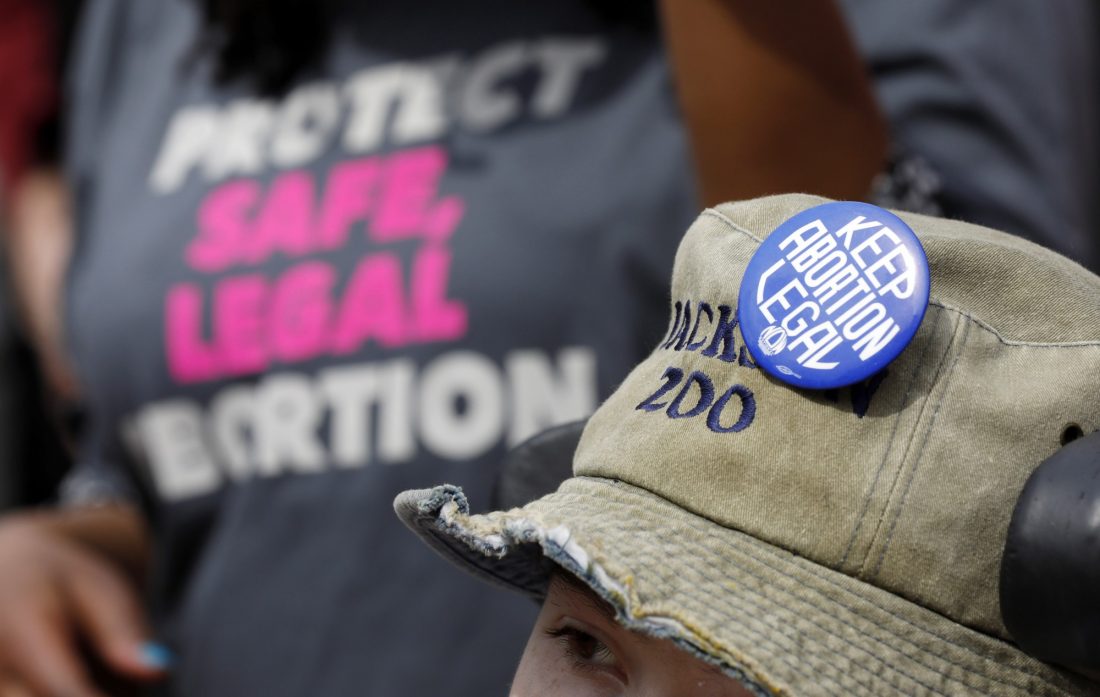MONTGOMERY, Ala. (AP) — Alabama legislators have given final approval to a ban on nearly all abortions, and if the Republican governor signs the measure, the state will have the strictest abortion law in the country.
The legislation would make performing an abortion a felony at any stage of pregnancy with almost no exceptions. The passage Tuesday by a wide margin in the GOP-led Senate shifts the spotlight to Gov. Kay Ivey, a fixture in Alabama politics who’s long identified as anti-abortion.
Ivey has not said whether she’ll sign the bill. Sponsor Rep. Terri Collins says she expects the governor to support the ban. And the lopsided vote suggests a veto could be easily overcome. But an Ivey spokeswoman said before Tuesday’s vote that “the governor intends to withhold comment until she has had a chance to thoroughly review the final version of the bill that passed.”
In Alabama and other conservative states, anti-abortion politicians and activists emboldened by the addition of conservative justices to the U.S. Supreme Court hope to ignite legal fights and eventually overturn the landmark 1973 decision Roe v. Wade, putting an end to the constitutional right to abortion.
“Roe v. Wade has ended the lives of millions of children,” Alabama Republican Sen. Clyde Chambliss said in a statement. “While we cannot undo the damage that decades of legal precedence under Roe have caused, this bill has the opportunity to save the lives of millions of unborn children.”
Democrats didn’t shy away from blasting their GOP counterparts.
“The state of Alabama ought to be ashamed of herself. You ought to be ashamed. Go look in the mirror,” Sen. Bobby Singleton said “Women in this state didn’t deserve this. This is all about political grandstanding.”
The bill would make performing an abortion a felony punishable by up to 99 years or life in prison for the abortion provider. The only exception would be when the woman’s health is at serious risk. Under the bill, women seeking or undergoing abortions wouldn’t be punished.
Kentucky, Mississippi, Ohio and Georgia have approved bans on abortion once a fetal heartbeat is detected, which can occur in about the sixth week of pregnancy. The Alabama bill goes further by seeking to outlaw abortion outright.
Alabama senators rejected an attempt to add an exception for rape and incest. The amendment was voted down 21-11, with four Republicans joining Democrats in seeking the amendment.
Supporters had argued that exceptions would weaken their hope of creating a vehicle to challenge Roe. Collins said that the law isn’t meant to be a long-term measure and that lawmakers could add a rape exception if states regain control of abortion access.
“It’s to address the issue that Roe. v. Wade was decided on. Is that baby in the womb a person?” Collins said.
Democrats criticized the ban as a mixture of political grandstanding, an attempt to control women and a waste of taxpayer dollars.
During debate, Singleton pointed out and named rape victims watching from the Senate viewing gallery. He said that under the ban, doctors who perform abortions could serve more prison time than the women’s rapists.
In a statement, Staci Fox of Planned Parenthood Southeast said, “Today is a dark day for women in Alabama and across this country. … Alabama politicians will forever live in infamy for this vote and we will make sure that every woman knows who to hold accountable.”
Outside the Statehouse, about 50 people rallied and chanted, “Whose choice? Our choice.” Several women dressed as characters from the “The Handmaid’s Tale,” which depicts a dystopian future where fertile women are forced to breed.
If the bill becomes law, it would take effect in six months. Critics have promised a swift lawsuit. Randall Marshall, executive director of the American Civil Liberties Union of Alabama, said a complaint is being drafted.
